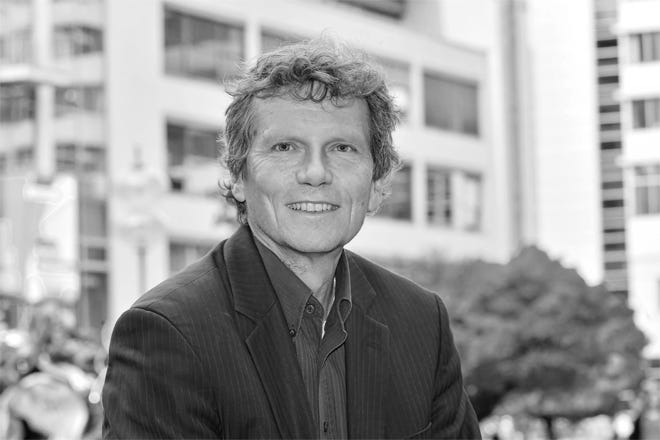The Social Acceleration Trap
Why Life Feels Unbearably Fast?
The concept of the Social Acceleration Trap, articulated by sociologist Hartmut Rosa, delves into the paradoxical experience of contemporary life. It describes a world characterized by rapid social change, relentless technological advancements, and ever-heightened expectations. Rosa’s seminal work explores how these dynamics contribute to a collective sense of overwhelm, alienation, and stress, leaving individuals feeling perpetually rushed yet profoundly unfulfilled.
As modern societies grapple with the implications of this acceleration, concerns over mental health, societal cohesion, and the quest for meaningful engagement have surged. Understanding this phenomenon is crucial for navigating the complexities of modern existence and reimagining what constitutes a fulfilling life amidst the incessant demands of speed.
It is not that we have a short time to live, but that we waste a lot of it.
Lucius Annaeus Seneca
Central to Rosa’s analysis is the idea that technological acceleration—particularly in communication and information dissemination—profoundly shapes societal norms and individual expectations. This rapid tempo of life has fostered a cultural logic that prioritizes efficiency and productivity, often at the expense of genuine human connection and well-being. Despite advancements that promise convenience and time-saving, Rosa argues they frequently lead to a “frenetic standstill,” where individuals struggle to keep pace and experience a pervasive sense of dissatisfaction.
Furthermore, the incessant demands for speed can exacerbate feelings of anxiety and depression, as the relentless flow of information creates addictive patterns of behavior and a pervasive fear of missing out (FOMO) on valuable experiences. Rosa’s exploration extends beyond individual experience to encompass broader societal implications, such as environmental degradation, traffic congestion, and the erosion of traditional social structures. These challenges reveal a growing crisis of identity and belonging in an era defined by speed, prompting critical discussions about the quality of life in late modernity.
Background: Hartmut Rosa’s Theoretical Framework
Hartmut Rosa’s work on social acceleration emerges from a critical engagement with the foundations of modern sociology and its approach to the temporal structures that shape contemporary life. He seeks to establish a new theoretical framework that transcends the limitations of traditional critical theories, which often focus on production relations, understanding, or recognition. Instead, Rosa emphasizes a critical diagnosis of temporal relations, arguing that these structures serve as the site where systemic imperatives transform into cultural orientations, shaping how individuals and collectives navigate their identities in a rapidly changing world.
Rosa posits that the principle of functional differentiation—a key developmental element of modern societies—plays a crucial role in accelerating social processes. He suggests that this principle can operate independently of economic systems driven by capital valorization, leading to social dynamics characterized by heightened speed and change. This is particularly evident in late modernity, where occupational and employment stability has diminished, resulting in individuals frequently changing jobs and adapting to new roles throughout their professional lives. As sociologist Richard Sennett notes, modern workers can expect to change positions multiple times and undergo retraining throughout their careers.
In his seminal work, “Resonance: A Sociology of Our Relationship to the World,” Rosa also reframes discussions surrounding modernity, connecting his analysis to a broader tradition of critical theory, including the thoughts of Marx and the Frankfurt School. He articulates a vision of sociology that encompasses a wide range of disciplines, integrating insights from the sciences, human sciences, and arts to explore how temporal structures influence human relationships and societal dynamics.
Moreover, Rosa highlights the increasing fragmentation within social sciences, noting that they often overlook the interplay between historical (diachronic) and structural (synchronic) dimensions of time. This division, he argues, has led to a failure to recognize how societies exist within and are reproduced over specific time-space frameworks. His work ultimately calls for greater attention to the complexities of temporal structures, advocating for a more nuanced understanding of how acceleration shapes contemporary experiences and the notion of a “good life” in modern societies.
The Social Acceleration Trap Defined
The social acceleration trap is a concept that encapsulates the multifaceted and often paradoxical nature of modern life. It describes a condition where the rapid pace of social change, driven by technological advancements and heightened expectations, leads to a collective sense of overwhelm and alienation from the world. Rosa argues that this acceleration manifests in various dimensions of life, including shifts in attitudes, values, trends, and lifestyles, culminating in increased stress and feelings of inadequacy in keeping up with the frenetic pace of contemporary society.
Dimensions of Social Acceleration
Technological Acceleration
Technological acceleration serves as a primary engine of social acceleration. Advancements in communication, transportation, and production technologies have significantly increased the speed at which information is disseminated and actions are performed. This phenomenon creates new societal expectations for efficiency and rapidity, leading individuals to experience time as an increasingly scarce resource. As Rosa notes, despite the myriad conveniences offered by modern technology, the increased tempo of life often results in a “frenetic standstill,” where individuals feel perpetually rushed yet fail to achieve the satisfaction or fulfillment they seek.
Psychological Impacts
The psychological ramifications of social acceleration are profound. The constant connectivity enabled by social media and digital platforms fosters a compulsion to remain engaged, creating addictive patterns of behavior that further intensify the pressure to keep up with the relentless flow of information and social interaction. This situation engenders feelings of anxiety and depression, as individuals grapple with the fear of missing out on valuable experiences or information.
It has become appallingly obvious that our technology has exceeded our humanity.
Albert Einstein
The Cultural Logic of Acceleration
Rosa suggests that the cultural logic underlying this acceleration reflects a modern aspiration to explore and realize a multitude of life options within a single lifetime. The pursuit of such an ideal leads to a lifestyle where individuals attempt to maximize their experiences, often at the cost of meaningful engagement with any singular aspect of life. This relentless quest for more—more experiences, more choices, more speed—creates a




